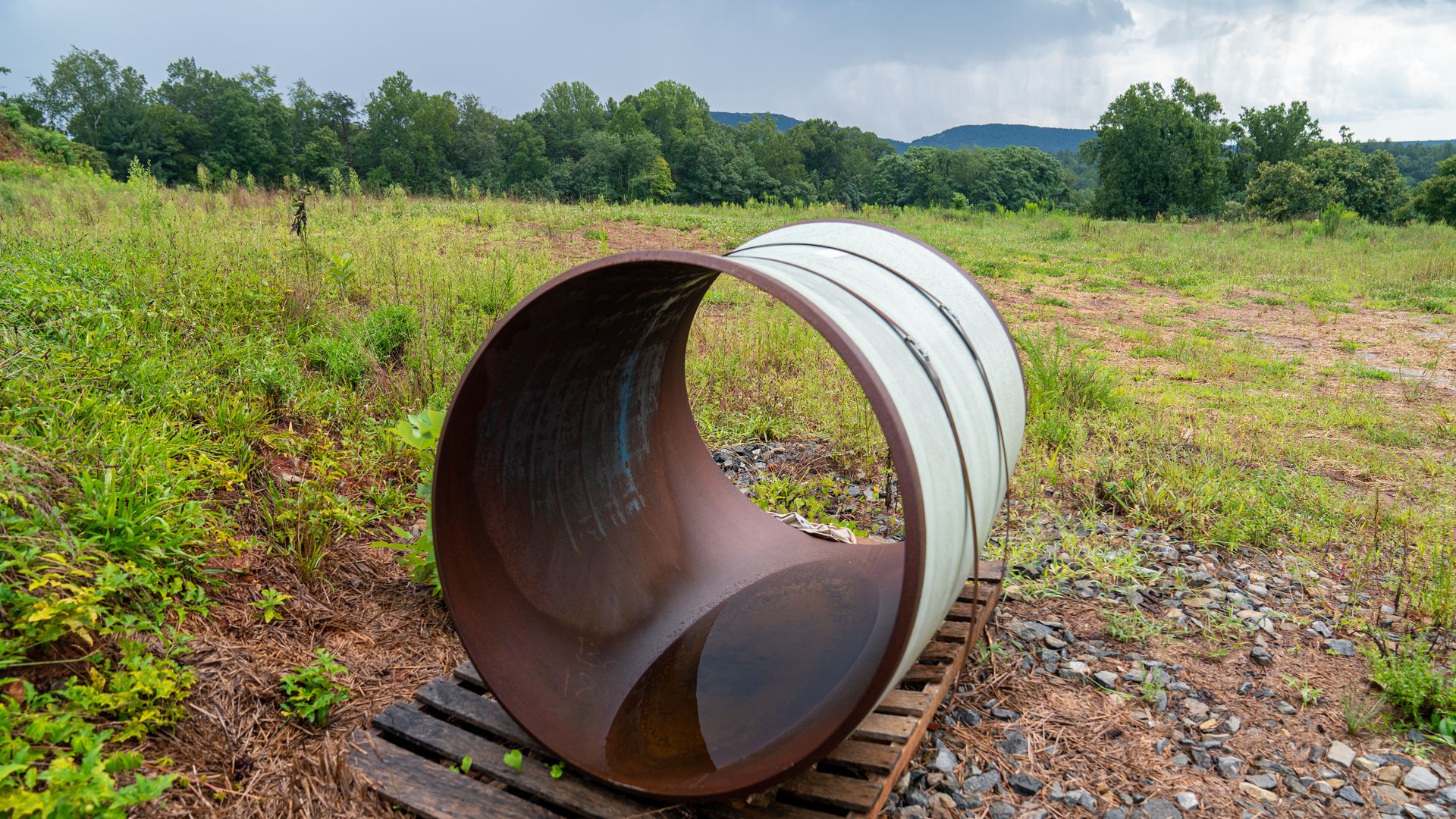Debt deal would approve Mountain Valley Pipeline

- Nick Sobczyk, author ofAxios Pro: Energy Policy

A section of the Mountain Valley pipeline. Photo: Robert Nickelsberg/Getty Images
The debt ceiling deal would expedite approval of the Mountain Valley Pipeline — an idea sure to annoy progressives in both chambers.
Why it matters: The White House and congressional leadership are already working with thin margins.
- The pipeline's inclusion in the deal is a win for Sen. Joe Manchin and the West Virginia delegation. But it’s going to prompt many progressives, who would get relatively little in return, to vote against the deal.
- "Disgusting,” Rep. Jared Huffman told Axios in a one-word text message reacting to the Mountain Valley news.
Details: The bill text includes language on the pipeline that Manchin has been trying to maneuver into law for nearly a year.
- The 303-mile natural gas pipeline spanning from northwestern West Virginia to southern Virginia has been stalled because of environmental concerns.
- Manchin tried — and failed — to pass it as part of his permitting proposal last year.
- As expected, the bill would establish timelines for National Environmental Policy Act reviews — two years for an environmental impact statement and one year for an environmental assessment.
- It would also expand categorical exclusions and speed permitting specifically for energy storage projects.
- But it would do next to nothing on transmission, requiring only a federal study on interregional power transfer capability.
Context: Recall that the White House promised Manchin a permitting bill, including Mountain Valley, in exchange for his vote on the IRA.
- The pipeline is nearing completion. Biden debt negotiators viewed it as a "symbolic" approval for a project that was probably going to happen anyway, according to a source familiar with the White House's thinking.
- In exchange, they got permitting provisions they believe will speed up renewable energy projects, the source said.
Of note: Many Republicans, including lead negotiator Garret Graves, had previously publicly panned the idea of using a permitting bill to give special treatment to one project.
- Ironically, it was one of the reasons they didn’t like Manchin’s legislation last year.
The big picture: It’s not exactly a grand bargain on “permitting reform,” and the vote wrangling might look a bit like the Manchin bill last year.
- This conversation is probably going to continue, as both parties seek broader changes to how the government deals with energy projects.